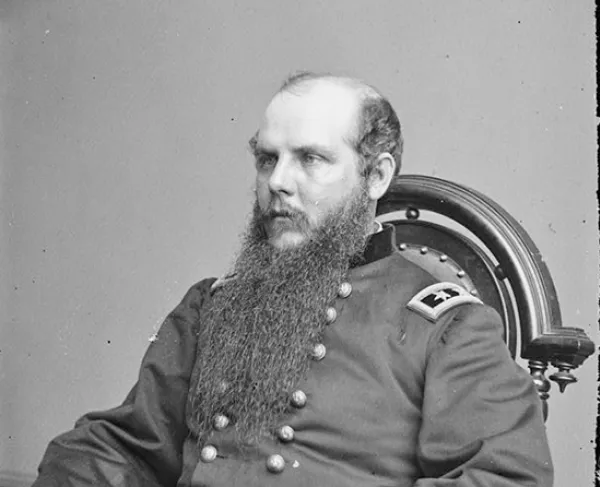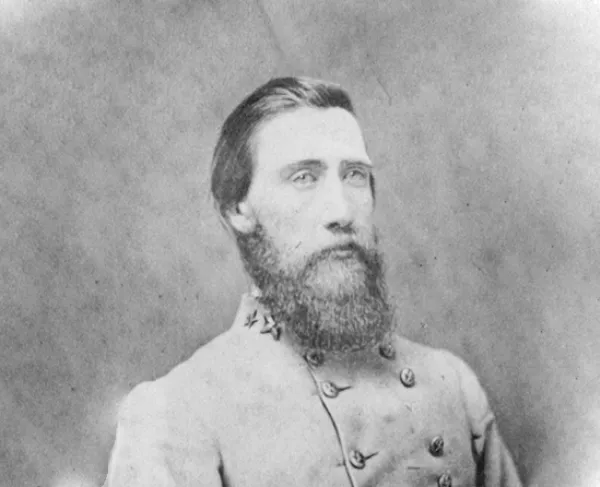
Spring Hill
Spring Hill, TN | Nov 29, 1864
On November 29, 1864, Confederate General John B. Hood attacked Union General John M. Schofield’s Union army at Spring Hill, resulting in the Union army slipping away during the night and towards Franklin, where the fighting continued the next day.
How It Ended
Stalemate. After holding off a late afternoon Confederate attack at Spring Hill, Union General John M. Schofield moved his army during the night past the Confederates astride the Columbia Turnpike to assume a defensive position at Franklin.
In Context
In the fall of 1864, the Confederate Army of Tennessee, under the command of John B. Hood launched an invasion of Tennessee. Hood hoped to capture Nashville before moving into Kentucky and potentially over the Ohio River. General William T. Sherman responded by detaching troops from his own army under General George Thomas to engage Hood and secure West Tennessee.
General John M. Schofield with two army corps blocked Hood’s advance at Pulaski, Tennessee. Hood pried Schofield from his position at Pulaski and the Federals withdrew to Columbia. The Confederate commander decided on a flanking maneuver to bypass Schofield and move to Spring Hill, capture the Columbia Turnpike, and cut Schofield off from Nashville.
Schofield, meanwhile, received orders from Thomas to fall back to Franklin. On the 28th, Schofield began to move elements of his army and roughly 800 wagons toward Spring Hill
On the morning of November 29th, Confederate cavalry under Gen. Nathan B. Forrest led the advance of the Confederate army and quickly moved across the Duck River. In the resulting action, Forrest’s cavalry pushed General James H. Wilson’s Union horsemen away from protecting Schofield's flank and monitoring Hood's movements. Around 10 a.m., Forrest turned west towards Spring Hill to lead the advance of the Confederate army.
By 11:30 a.m., Forrest's cavalry column reached the Spring Hill area and engaged elements of General George Wagner's division. About midday, Patrick R. Cleburne's division arrived towards the south along the Rally Hill Pike. Once deployed, Cleburne launched a limited assault, only to be met with devastating fire. The division commander then sent his entire division forward, pressing the Union line back, only to be brought to a halt again. Darkness ultimately ended the fighting.
350
500
Miscommunication throughout the night Confederate high command allowed Schofield to slip away. Aware of the situation and the potential of Hood blocking his route of march, Schofield pushed ahead toward his objective. Shocked at his inability to trap the Federals, Hood pursued and launched a major assault against Schofield the next day at Franklin.
With both sides facing one another at Columbia, Hood decided to swing around Schofield. He left General Stephen D. Lee's corps with most of the army's artillery at Columbia to hold Schofield in place while the remainder of the army maneuvered around the Union flank. Lee bombarded the Federal lines and made Schofield believe that a direct attack was coming. Around 3 p.m., Schofield finally realized the ruse and left Columbia.
On the night of November 28-29, 1864, John M. Schofield moved some 27,000 men along with his baggage past the Confederate positions along the Columbia Turnpike. This movement allowed Schofield to safely reach Franklin, preserving a Union force vital to the defense of West Tennessee.
Spring Hill: Featured Resources
All battles of the Franklin-Nashville Campaign - September - December 1864
Related Battles
7,000
12,000
350
500














